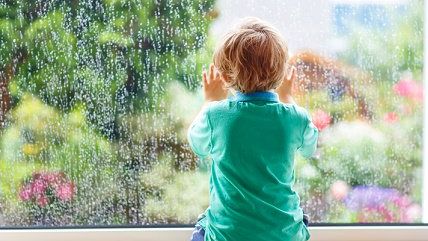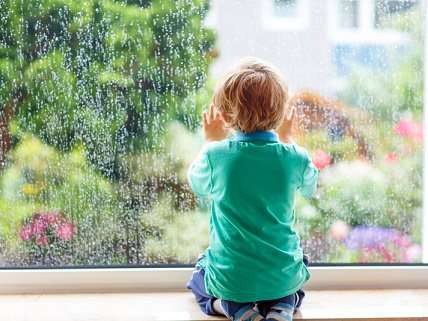8-Year-Olds Can't Be Left Alone in British Columbia. No Exceptions.
Making helicopter parenting the law of the land.


An 8-year-old cannot stay home alone, even for two hours after school, British Columbia's Supreme Court just ruled.
A mom had been doing just that, without any problems, until a social worker was alerted to the situation. (Possibly by the husband from whom the mom is separated.) According to the Vancouver Sun:
A social worker visited the home and told the mother a child under the age of 10 could not be left alone. She asked the mother — identified only as B.R. in court documents — to agree to a "safety plan."
When the mother refused, the social worker asked to speak to the boy, but the mother again refused.
If I ever meet that mom, I will have to give her a crown: She refused to make a safety plan because she raised the safety plan. Her son is clearly capable of being on his own for a few hours—as are almost all 8-year-olds—because that's how he was raised. Traditionally, parents raise their kids so that gradually those kids can take responsibility for themselves. In most of the world, this is normal and good. From Switzerland to Swaziland, kids start getting themselves to school, by foot, bike, or bus—on their own—at age 7. And yet the social worker ordered the boy to be supervised for six months.
Even worse:
The social worker testified that, in her opinion "children who are eight years of age do not have the cognitive ability to be left unsupervised," citing various risks, including accidental poisoning or fires, which could arise "regardless of (the boy)'s level of maturity."
On the strength of that evidence, the judge accepted that children under the age of 10 could not be safely left alone.
Evidence? What evidence? All the social worker did was give an opinion. She dreamed up some very rare risks and then said that a child—no matter what his maturity level—would have a hard time dealing with them alone.
This is classic "worst-first thinking"—thinking up the very worst case scenario and proceeding as if it's likely to happen. Our culture's problem is that we have been trained to automatically fantasize about disaster anytime we hear of a child alone, as if simply being unsupervised = death. The mother attempted to counteract this knee-jerk tendency, but to no avail:
The mother appealed the decision, contending there was no basis for the judge to conclude the eight-year-old was in need of protection. In her appeal, the mother said the social worker usurped the function of the legislature, given that no minimum age for leaving a child alone for a short period is prescribed by statute.
She also maintained that the social worker's evidence was tendered as expert opinion and was improperly admitted, and that children mature at different times.
However, Punnett ruled that "great deference" must be given to social workers in such cases and that her testimony was valid.
"The social workers have a statutory duty to be truthful, to be honest, to be complete and to do their very best."
So social workers are doing their very best, but parents are slackers who couldn't care less what happens to their own children. Only the state cares enough.
Here's what's really happening in this case: A parent is protecting her right to raise her child the way she sees fit, while the social worker is protecting her job. Social workers have every incentive to overreact to even the most remote chance of danger, because there are no negative consequences to going wildly overboard. In fact, such paranoia keeps them in business.
As for parents, now they must:
- Find and pay for childcare, even when a child is old enough not to need it.
- Treat their kids like babies, even when they want to give them more responsibility and show their kids that they believe in them.
- Second guess every decision they were going to make about how they raise their kids. If the law states that you can't put your children in any "dangerous" situation, now you, too, have to fantasize about all the dangers that could possibly unfold, no matter how far-fetched, and overreact just as ridiculously as the social workers and courts.
In other words, the state is insisting that parents think obsessive, negative thoughts and then act on them.
If letting your kid wait at home for two hours is criminal because there could be a fire, if letting your kid wait in the car for 5 minutes is criminal because you could forget him, if letting your kid walk home from the park is criminal because he could be abducted, then parents have no choice but to be helicopter parents. Helicopter parenting becomes the law of the land.


Show Comments (100)